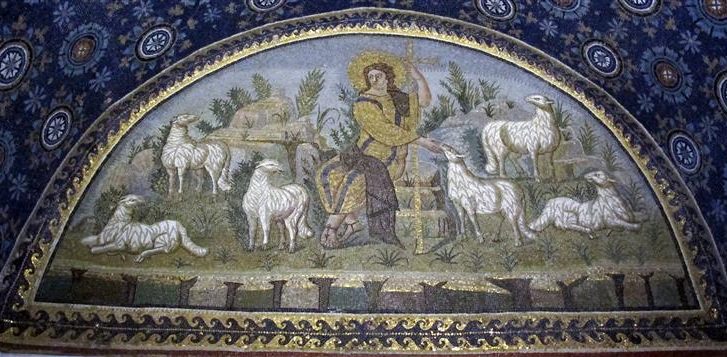The gardener who spoke softly to the grieving Mary Magdalen in the garden. The stranger who walked with the despairing Disciples on the road to Emmaus. The appearance that startled the fearful Apostles hiding behind closed doors in the upper room. The cook who appeared on the shore of the lake and prepared fish for incredulous Disciples. The shepherd who pursued with determined love the lost lamb.
We hear all these earthy and descriptive titles used in the Gospels after Easter. They are the Gospel writer’s attempt to convey one truth: that Jesus, in many disguises, is alive here and now. And He is active in the everyday-ness of our lives.
I want to tell you a story about Lorraine Murray. She is a young married woman who is struggling with cancer. She wrote a book called Grace Notes. In the introduction, she writes of her sense of God’s presence. She says, “These essays were born of my desire to know Christ in a more heartfelt way. I longed to dance with Him at a wedding, and weep with Him in the Garden. I wanted to know the gentle Man who loved fishing, eating with His friends, and praying in the desert.”
This was the Man who immersed Himself in our broken world. He loved people who were flawed: they were harlots, tax collectors, and thieves. He loved people that others feared, the lepers and the demon-possessed. Instead of condemning His torturers, He forgave them. He lived by serving, by washing feet, and by healing those who were desperate and abandoned.
In the 33 years He walked among us, Christ turned the whole world upside down. He told us the poor are rich, the last are first, the meek are blessed, and the dead are alive.
Lorraine knew all this, felt all this, but it had not always been this way.
It was in college that she left the Church and took another path. But living for herself, having nothing to live by, finding that empty and vain, she eventually came back. She said, “Returning to the Church, I discovered something about faith. Paradoxically, the long dry spell of disbelief had produced a robust harvest. I was able to observe the rituals of my religion with fresh eyes, and hear the words of scripture with fresh ears.
I was especially thrilled by the story of the Good Shepherd, who was restless and disheartened when even one of His lambs was missing. It spoke to me of love. I pictured myself a lamb that had wandered far away from Christ. I envisioned Him gently coaxing me back to His safe enclosure.”
In short, Lorraine again recognized Jesus’ voice, and followed Him. Easter became a reality for her because Easter is the belief in a Jesus who is everything she described. Her story is the same as that of the two Disciples on the road to Emmaus, or Mary in the garden, and it is our story, too. Even when we are sad and troubled, the Stranger is there. Even when we are in an arid place, the Gardener is there. Even when we are fearful and doubtful, hiding behind closed doors, He comes through. Even when we have strayed and sinned, the Shepherd is there to find us and bring us back.
And He is alive now as we sit here. Jesus is a living presence in our lives. And Easter is the celebration of the risen Christ who not only daily calls our name as He did to Mary by the tomb, but calls it with love and concern and promise, as friend to friend. Like the two Disciples on the road to Emmaus, we walk with Him every day. But sometimes we have to see past the many disguises, and open our eyes.


